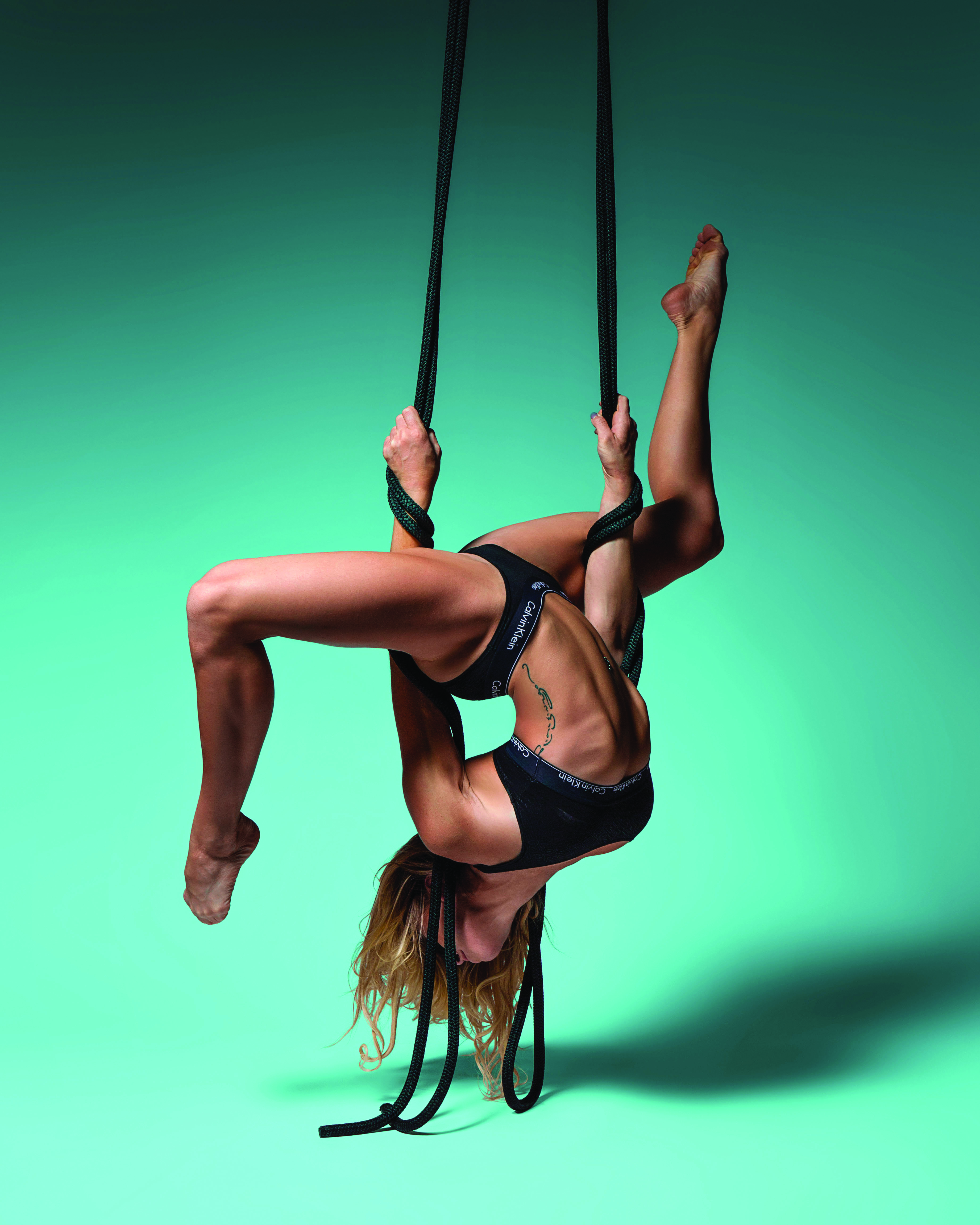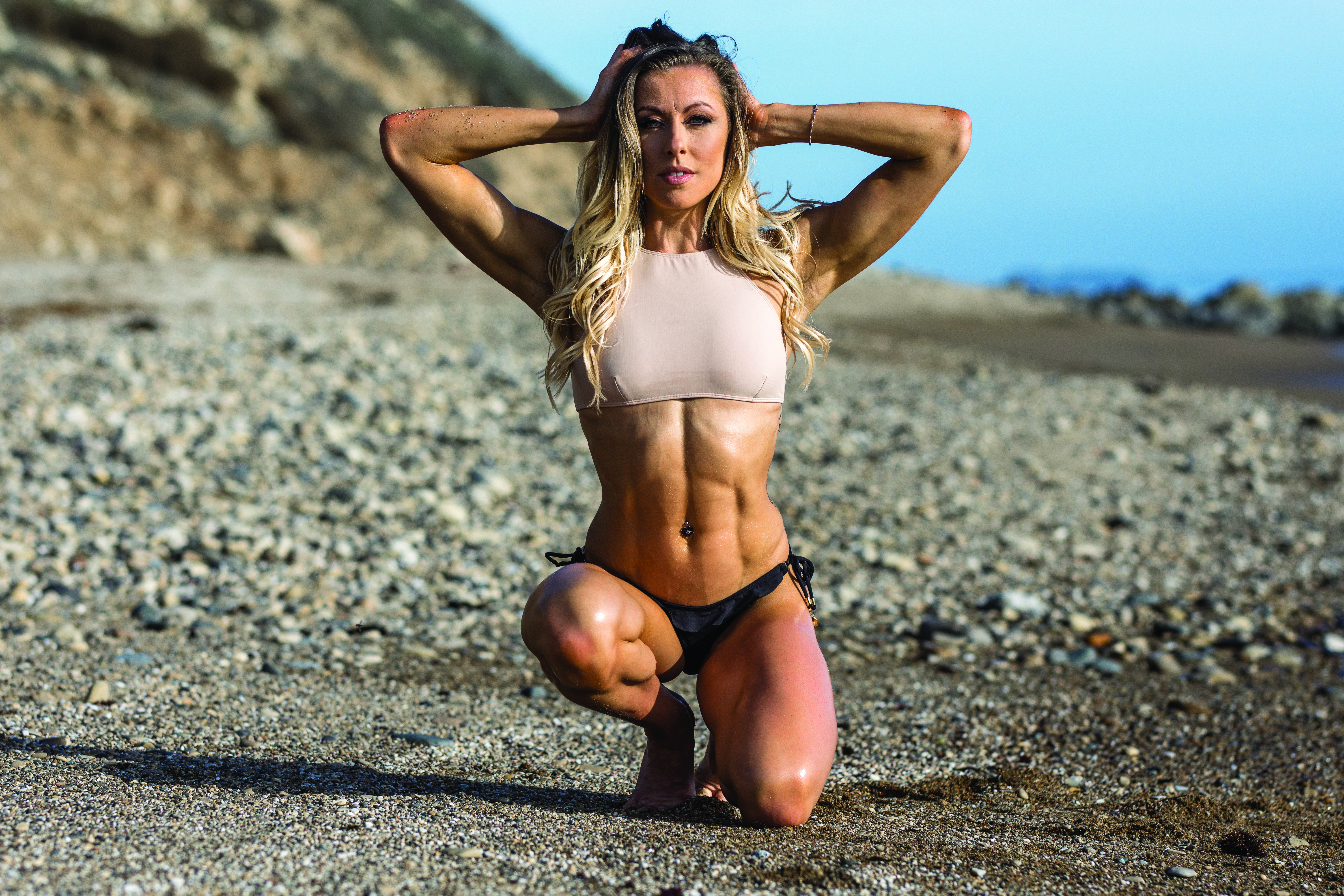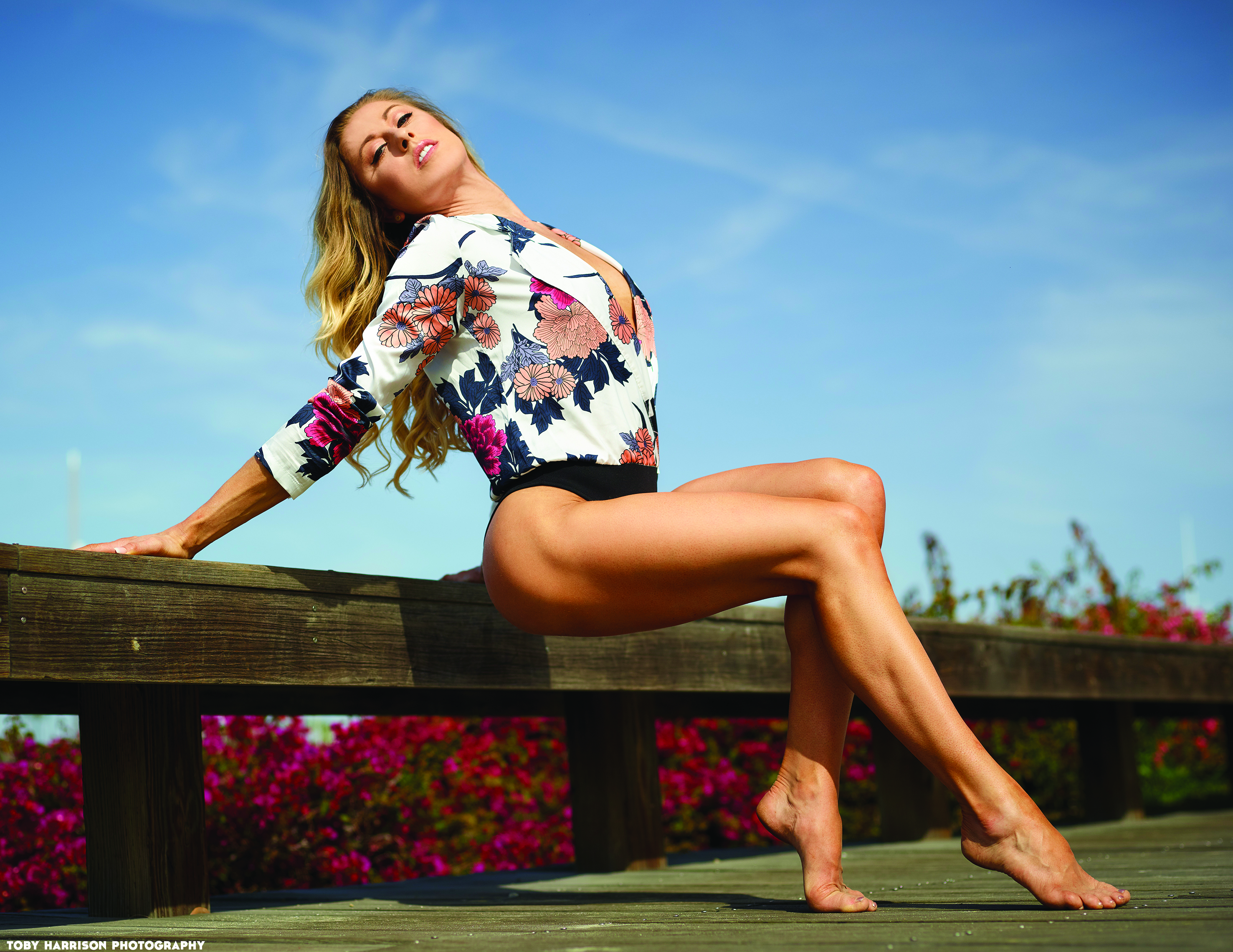Cirque du Soleil is not your average circus.
Cirque du Soleil is not your average circus.
Share
Moreover, being part of it requires extreme levels of fitness, as Ovo star Alanna Baker reveals
People think circus and they might imagine clowns and jugglers. Cirque du Soleil is so much more than that, of course… tell us about Ovo… what is it, and what do you do?
Ovo is one of the many shows that Cirque Du Soleil has. It’s a very fun, colourful, lively and family-friendly show including high-level acrobatics, live musicians, great projections and an easy-to-follow storyline. It’s about the day in the life of an insect, showing acceptance of others (as we’re all from different insect families) and, of course, a love story evolves throughout the show too. I play the black widow of the colony. I’m an acrobatic character, so I’m on stage the majority of the time, supporting other acts, dancing, charactering, bending, climbing, aerial… you name it. At one point, I fly high above the audience in my hoop, contorting, twisting, spinning and hanging… it brings me such joy to perform.
The show has been described as a ‘non-stop riot of energy in motion’. You need to be seriously fit and flexible to do this, so how do you train for it?
I’m actually a bit of a fitness fanatic. I love to keep fit and work out, it’s part of my lifestyle. Everyone’s different, we all know our limits and boundaries within our bodies. Some people train a lot, others will do what they need to for the show and that’s good for them. We have training sessions three times a week roughly, give or take depending on the week of shows and other rehearsals. I also like to workout on top of that. So I’ll go get my work out in first thing in the morning, then head into work for training rehearsals and the show.

You’re strong, agile… your training must involve weights, cardio, yoga… all sorts?
I love to do weights! And cardio. I’m also a fitness competitor, so my training varies depending on
my goals at the time. For example, right now, I’m in a building phase, so I’m doing no cardio. The show is my cardio session! I don’t need to do yoga, but I do a lot of stretching when I’m at work as I need to keep flexible. A lot of my role is upper-body work, so throughout the show I’m on a climbing wall, climbing up and down a rope. It keeps me fit, that’s for sure.
We can see some of your training on your Instagram feed (alannabaker). Have you always been flexible, or is that the result of years of training?
I’ve always been quite naturally flexible, but I also started gymnastics from a young age, which definitely helped. Flexibility for me is a huge part of my job, so finding that balance between gaining muscle and keeping flexibility is interesting.
How did you get into Cirque du Soleil?
I was a competing gymnast for GB until 2012. Talent scouts were always present at the major completions, so they knew who was out there. Then there was a closed audition held at my gym towards the end of my competing career and from there I got put into this huge database. Six months after finishing competing I actually then got a call asking if I wanted to go to Montreal to do a general training programme for three months, not guaranteeing a contract. I actually ended up being the only one of three that got offered a contract, there and then. It was the best three months of my life!
What is it like working at a circus?
I never feel like I’m working. I’m literally living my dream. Every day is a new challenge, but you’ve got to be willing to create that yourself. I always say as artists we should never stop growing. We’ve got to learn to feel comfortable in the uncomfortable! That’s when it starts to separate the best from the rest. I also find that I’ve got so used to working with the other artists around me that I forget how exceptionally talented everyone is, because we see it every day. But my god, I work with some incredibly skilled, mind-blowing artists.
You travel the world but work very hard. Is it hard eating well and training while on tour, or is that part of the job?
We actually have a catering team which travel around with us. It’s the best thing ever. They take such good care of us, always providing us with nutritious foods but also treats, as it’s not just artists eating there, it’s the whole team of people who work on our show.
I don’t find it that hard keeping on track whilst on tour, but I’m a very strong-minded person and when I put my mind to something I go all in or not at all. For me, eating well makes me feel amazing and gives me all the energy I need. So I’m very specific with what I eat knowing it’s going to fuel me.
All the training I do also just makes my job easier, the stronger I am, the easier I make it for myself.
You first watched the circus as a kid and you said that’s what you wanted to do when you got older. How does one start that journey?
So I was training gymnastics from the age of five. My parents then took me to see my first Cirque Du Soleil show at the Royal Albert Hall at the age of eight. That’s where the spark first started and I had a fire burning inside of me to get on that stage and perform. I continued to train, day in, day out, for years and years and then here I am today living my dream. It didn’t come easy, let me tell you that. Through a lot of hard work, dedication, patience, successes, failures, sacrifices… everything taught me and brought me to where I am today. After all the years of paying to do what I love I’m finally being paid to do what I love and I get to travel the world. I couldn’t ask for more. I have a lot to thank my parents for, always driving me back and forth to training, paying the fees… they were so supportive and I wouldn’t be where I am right now without them.

You were into gymnastics and trained with GB, even won a European medal. At what point did you switch your attentions? Were you not tempted to continue competing?
I became European champion in 2011 with my partner Poppy Spalding, and we were bronze medalists at the World Championship 2012. I already had in my mind that my time with competing was coming to an end. I was 19 years old and I was ready to try and push further towards my dream.
That must have given you an excellent level of fitness and flexibility, though. The skills are very transferrable!
Oh for sure, a lot of my strength, flexibility, technique and even characteristics come from that sport. It teaches you so much without even realising. Trust. Hard work. Determination. Patience. Commitment… the list is endless. One thing that does change is going from an athlete to an artist. When you’re an athlete you’re preparing yourself for maybe two major competitions a year. However, as an artist you have to be on your A-game 24/7, doing 7-10 shows a week, so you have to really know your body well, to know when to ease off or when to push more. But when performing on stage I get that exact feeling I used to when being on the competition floor! It’s amazing. I still have to pinch to myself to this day, telling myself it’s real.
Give us an insight into a typical day’s training….
For me at the moment, I have a lower and upper-body split. But usually I’ll lift weights in the morning then head into work where I’ll have anywhere from 1-3 training sessions/rehearsals/choreography sessions before doing a show. I’m also the dance captain of the show, so I make sure the choreography is up to scratch and teach people what they need to know. When we get new artists I’ll teach them until I think they’re ready to be put on stage to perform.
Could you give us a typical workout including reps and sets so that our readers could follow it and get circus fit?
I’ll give you the actual workout I did yesterday, which has left my legs and glutes sore today! I love to feel sore after a workout, if I don’t then I don’t feel I’ve worked hard enough.
Lower body:
Back squats 4×6
Good mornings 4×10-12
Leg press 4×10-AMRAP
Bulgarian split squats 4×12/leg
Sissy squats 4×12 (a favourite of mine)
Leg extensions 4xAMRAP
What’s the hardest thing about being in the circus?
I am constantly on the road, so on arena tours we do 10 weeks on, two weeks off. We’re only usually in each city for a week. Every Sunday after the show we transfer to the next city, by bus or charter flight depending on distance. So I practically live out of a suitcase. I’ll unpack certain things, but some stuff never leaves the case. Because it’s so fast paced I sometimes (regularly) forget where we were or even are. People ask and I have to remember the hotel and then the walk to work and then you remember the city, it’s terrible! But I love to travel so it’s also the best thing, I get to see a new city every week. So much exploring and adventuring to do.
How do you fuel your training, what would you eat when training or working on tour?
I like to eat very wholesome and nutritious foods. I’ll always be eating clean proteins, (chicken, fish, steak, eggs), carbs, (brown and white rice, sweet potato, rice cakes, oatmeal), fruits and veg (berries, bananas, pineapple and vegetables anything green goes), fats and sugars (peanut butter, honey, nuts).

You’re touring the UK, it must be nice to be home?
It’s so nice to be touring the UK, especially as a lot the cities I actually have never been to. It’s nice to actually feel close to home for once too and be able to have friends and family visit so easily.
Where’s the nicest place to visit while touring?
That’s a tough question, I’ve been to so many nice places since I’ve been touring. I’ve been lucky. I started in Australia, then Taiwan, then Japan, North America and now the Europe tour and then onto South America. It’s nice because I get to visit places I wouldn’t necessarily visit. For example: Japan, I don’t know if I would have ever chosen to go there, but now I can’t wait to go back!













FOLLOW BESTFIT